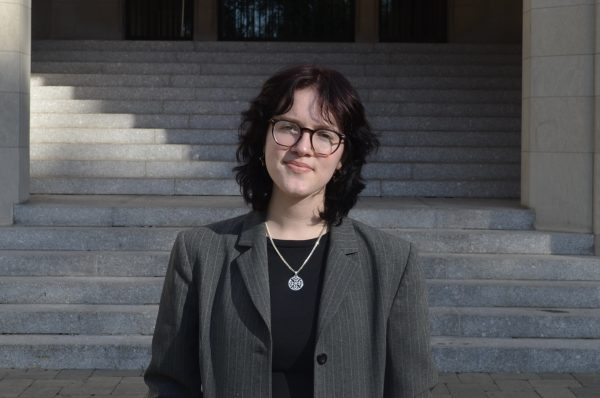After an 18-month Mission Priority Examen (MPE) process, Fordham University has had its Jesuit and Catholic identity and mission confirmed. The process is spearheaded by the Association of Jesuit Colleges and Universities (AJCU) and assesses Jesuit universities around the world every seven years.
“It’s a very important moment for us, it underscores how Fordham belongs to a much larger Jesuit world of schools,” said John J. Cecero, S.J., vice president for Mission Integration and Ministry.
The Examen was born out of an idea from the Dicastery for Culture and Education in Rome, which was receiving complaints that Catholic universities weren’t following the Catholic mission. They reached out to the Superior General Arturo Sosa Abascal, S.J., and asked if he could initiate a protocol where Jesuit universities could routinely prove they are remaining on mission.
The first Mission Priority Examen was seven years ago, and only United States Jesuit institutions took part. Through the process, they created the seven characteristics of Jesuit higher education, which schools now use to evaluate themselves.
“The Dicastery for Catholic Education [has] shared the protocol with other Catholic universities, and in that way, the Jesuits became a leader in this,” Cecero said. “And did them a tremendous favor of doing this work.”
The Examen involves surveying groups of students, faculty and admin, a self-study report by the University and inquiries made by other Jesuit universities.
“It really is an opportunity; it’s not an accreditation in the way Middle States is for us. It’s an Examen, an Examen is a self-reflection, and that’s what it is intended to be,” said Cecero. “A moment for the university to really step back and ask itself about its mission and then to make some commitments based on that.”
Fordham’s previous Examen led to the foundation of the Center for Community Engaged Learning (CCEL), after the university found they needed to improve their service learning programs.
This year’s self-report highlights four mission priorities: implementing the mission through people’s entire Fordham journeys, supporting faith, engaging in research that matters alongside transformative teaching and forming a multi-faith community.
The consensus from the peer reviewers was that the mission of the university is clear to members of senior administration, but may need more work and focus to better connect with faculty and students. Cecero said that the surveys they did also came to that conclusion, so it is one of their main goals for the next seven years.
“One of the things campus ministry is going headstrong into is working much more closely with residential life. We’ve always had somewhat of a presence in the residence halls, but we’re really doubling down on our presence in residence halls,” he said.
The university is also starting a series of small group encounters with faculty and staff to allow them to connect with each other and Fordham’s mission.
After its self-study and peer reviews, Fordham sent its report to the provincial of the Jesuit province Joseph O’Keefe, S.J., who wrote a summarizing cover letter and sent it to the Superior General in Rome for review.
“[The Superior General’s] feedback to us was that he wholeheartedly endorses our Jesuit and Catholic identity, he was impressed with our honesty and transparency in the Examen and with our dedication to the core Jesuit values,” said Cecero.
This year was the first Examen opened up to global Jesuit universities, though only U.S.-based universities were required to take part.
“The MPE is always an opportunity to select areas for community focus in the near term,” said Rev. Philip Judge, S.J., Executive Director of Campus Ministry, in an email. “The two I find most promising in Campus Ministry are the call to forge community across faith and cultural traditions even as we emphasize our Jesuit and Catholic roots.”
Cecero emphasized the importance of taking the mission priorities and utilizing them in all aspects of Fordham, from first-year orientation to graduate-level research.
“We’re not educating students here primarily to fill slots, we’re educating students to be transformative leaders in the world, and that’s what matters,” he said. “So in order to be transformative leaders in the world, they have to be taught in a way that is transformative.”








































































































































































































